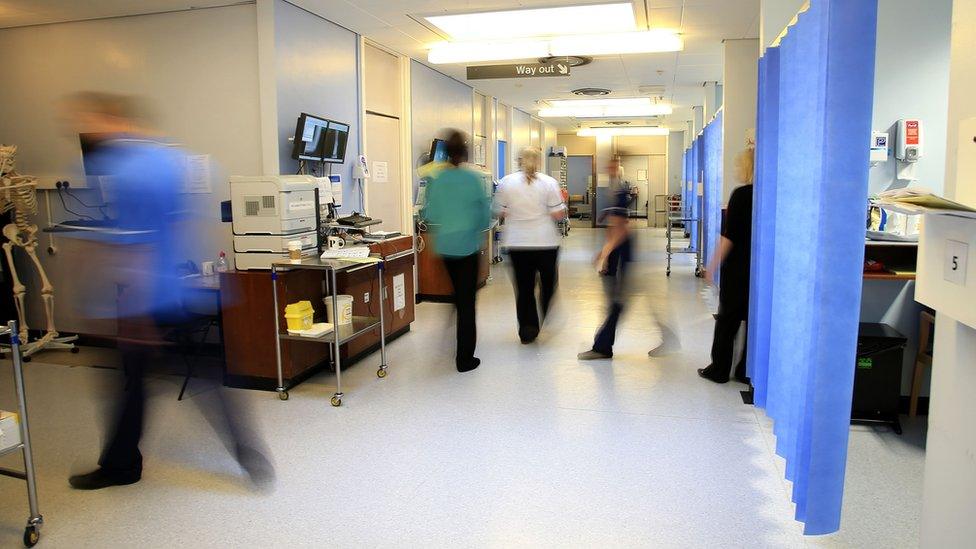Irish nurses' strike leader supports NI nurses' action
- Published
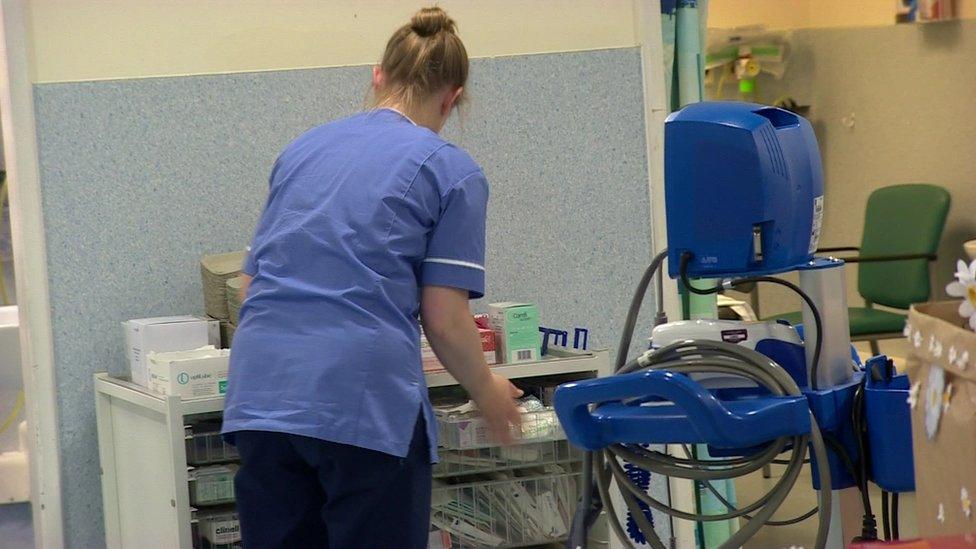
Last week, nurses in Northern Ireland voted to strike over staffing numbers and pay disputes
The head of Ireland's nurses' organisation has said it is unfortunate Stormont is not available to broker a deal ahead of a strike by NI nurses.
Phil Ni Sheaghdha, general secretary of the Irish Nurses and Midwives Organisation (INMO) helped lead a nurses' strike in the Irish Republic.
She said lack of devolution was not ideal, but should not stop the current decision makers from negotiating.
Last week, NI nurses voted to strike over staffing numbers and pay disputes.
It was the first time in the Royal College of Nursing's (RCN) 103-year-history such action had been taken in the UK.
In Belfast to advise her northern counterparts, Ms Ni Sheaghdha said striking INMO members had been lucky in that the machinery of the state was up and running and willing to host talks.
Speaking to BBC NI, she said the public fully supported nurses in their attempt to achieve better pay and to make the health service a safer place for nurses and patients.
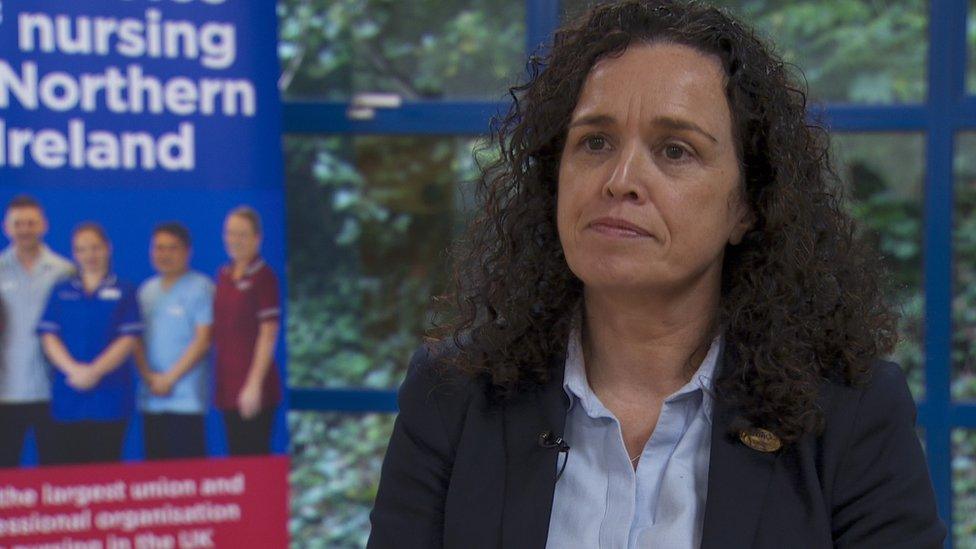
Phil Ni Sheaghdha is general secretary of the Irish Nurses and Midwives Organisation
"We found the public supported us during the dispute," she said.
"We found the attendance at our picket lines encouraged us to continue. They said: 'You are lifting a lid on something that needs to be examined, no-one is talking about the reality of the public hospital system'."
Approximately 40,000 nurses and midwives in the Republic of Ireland were involved in industrial and strike action across three days earlier this year.
Ms Ni Sheaghdha said no nurse wanted to strike but that they had to be taken seriously from the outset.
"When you are negotiating you have to negotiate with decision makers and whoever the decision makers are they have to understand that if nurses are serious and strike action happens, strike action always has to end and we have to have a forum in which to negotiate a settlement."
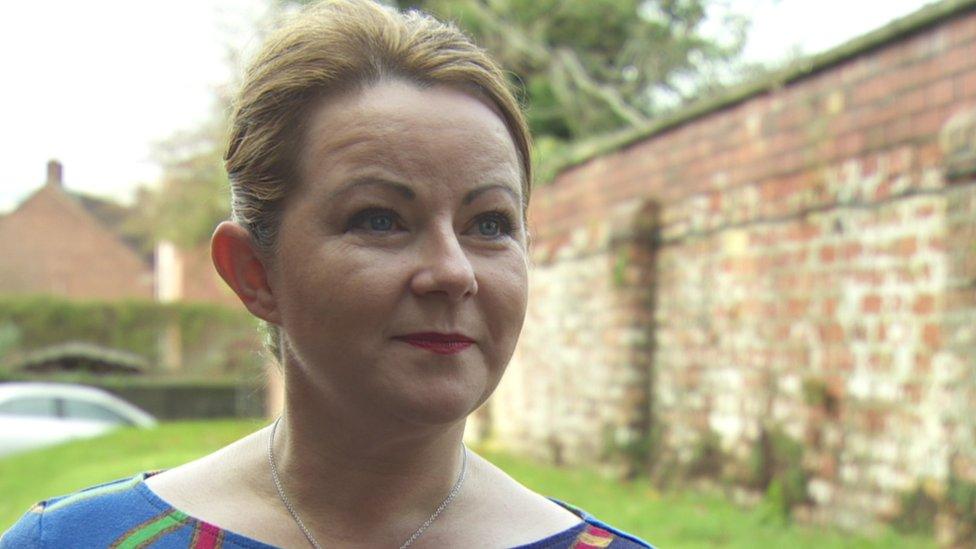
Denise Kelly is among those who voted for strike action because she feels so frustrated with the status quo
Denise Kelly has been a nurse for 27 years, but says she has become so frustrated that she is now also studying for a postgraduate degree in strategic workforce planning. She voted for strike action.
"I know what it's like to work on the front line and the importance of planning ahead and ensuring staff are trained and available to work and nurse our patients safely," she said.
"It is extra work for me, but I want to do the best I can for nurses and our patients.
"The health service must be able to plan strategically for five-to-10 years ahead. It's not rocket science. It can be done."
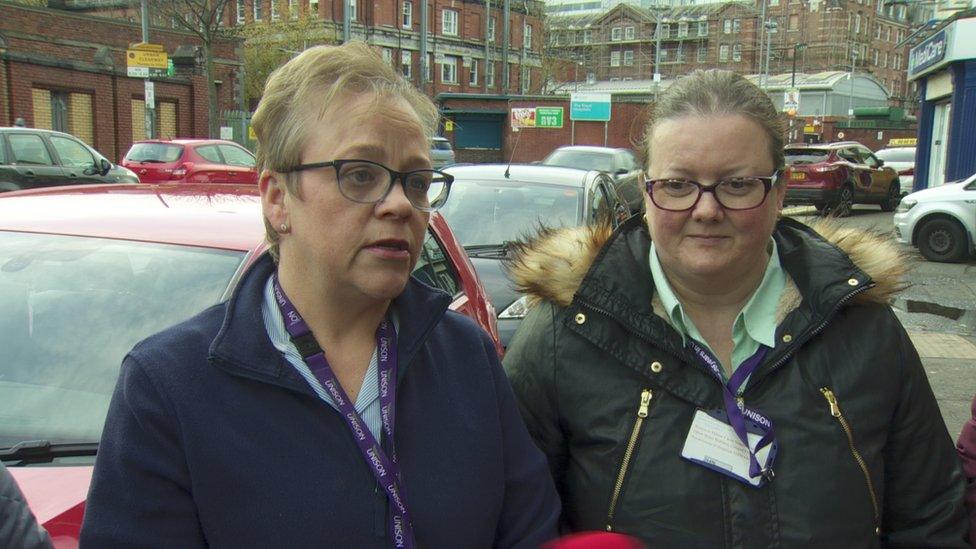
Unison workers say they are not being paid on an equal basis with their colleagues in the rest of the UK
A number of Unison workers also explained why they are backing strike action.
"My terms and conditions are the same as the UK but my pay isn't and I think our pay should be exactly the same," one said.
Another added:"The costs of living have gone up but our pay hasn't reflected that in the past ten years so, basically, to make ends meet is really hard."
Budgetary constraint
Northern Ireland's devolved government collapsed almost three years ago.
In the absence of a functioning assembly and a health minister, responsibility for decision making lies with Department of Health Permanent Secretary Richard Pengelly.
In a statement, the Department of Health said it remained "focussed on finding a way forward" and was finalising a formal pay offer for 2019/20.
"This will be the best offer possible within the budget available, but the reality is that our ability to address pay issues is inevitably constrained at a time of intense budgetary pressures for health and social care services."
Both the RCN and Unison members are likely to begin with industrial action, turning to strike after Christmas.
In the Republic of Ireland, hospital appointments were affected which affected already soaring hospital waiting lists.
- Published7 November 2019
